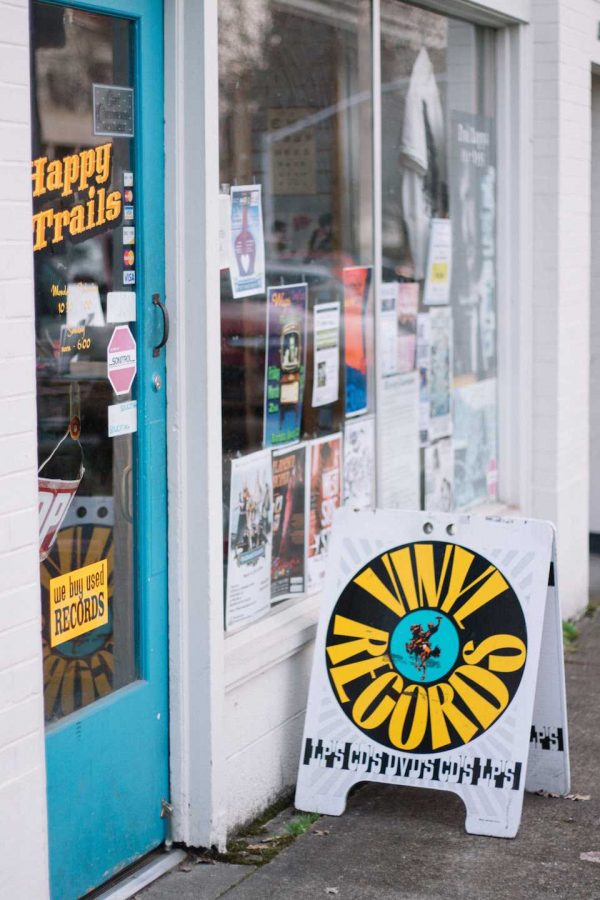Opinion: Digital Age music wipes out records
March 5, 2018
Vinyl fights to stay alive, mixed reviews on digital music.
Could it be true that music no longer possesses the voices of the truly talented, but of the masses? Has the accessibility to music diminished the integrity of the works produced?
The fruitful modern era has delivered opportunity, creativity and accessibility, but some believe that it is threatening the artistic value that music can possess.
Doug DiCarolis has been the proud owner of Happy Trails Records for 33 years. DiCarolis provides music that customers and members of the community are asking about and looking for. A longtime fan of the classics, DiCarolis says he isn’t too fond of the new way music is produced and distributed.
“In my generation you actually had to know how to play drums—which is actually an art, and takes real heart and soul to do it well, whereas I can operate a drum machine and have it sound good, even though I have no talent,” DiCarolis said.
According to DiCarolis, the audio quality of synthesizers and drum machines are a big turn-off to music. He believes that artistic authenticity is becoming endangered.
DiCarolis’ persistence and grit has kept a record store kicking in this digital age of file sharing and music streaming.
“When the digital revolution started and people were downloading and streaming instead of physically buying copies of things, about 80 percent of the record stores went out of business,” DiCarolis said. “Corvallis used to have five record stores, and now we are the only one.”
Daniel Faltesek has been at Oregon State University for six years and is the assistant professor of social media. He teaches introductory classes to media and does computational research on social media.
Faltesek doesn’t believe it’s right to claim that one mode of consumption is better than the other, they are just different.
“It has a lot more imperfections, and there is an interesting philosophical take on the idea of vinyl records that their imperfections make them warm and interesting and original as opposed to other media like CD or MP3, which are a lot flatter,” Faltesek said.
Vinyl may be a historical relic of musical history but listeners today aren’t concerned with the integrity of the sound. They are looking for music that reflects their beliefs and feelings.
“Where finding a place where instead of measuring or evaluating just the people that we thought were a little less risky, we’re starting to see people listen to what they want. It’s about making the market process more
coherent,” Faltesek said.
The faint interest in vinyl records could be related to hipster culture, an affection for nostalgia, or to preserve the musical era they came from.
Dominik Bartmanski is a sociology graduate from the school of Technische Universität Berlin, Germany. He is also a writer for the online journal called Consumption Markets & Culture ran by Taylor & Francis Online.
“Here, vinyl is no exception, and is an excellent example of the hybridization tendencies inherent in how this ‘new, old’ commodity is marketized in the context of the digital era of music consumption,” Bartmanski said.
We need digitized music, because the creative process is remarkable and it’s important for us to distribute what artists need to say.
“If you’re someone who was a teenager in the ‘90s, your music selection was more restricted; there weren’t a lot of options. Whereas now there are a ton of options for a fair price,” Faltesek said.
Sharable files and music streaming services create a wider bridge between the artist and the consumer, allowing musicians to efficiently connect with their audience.
It is important to take note of the history within music, but we shouldn’t let it stop us from building a modern identity.











































































































